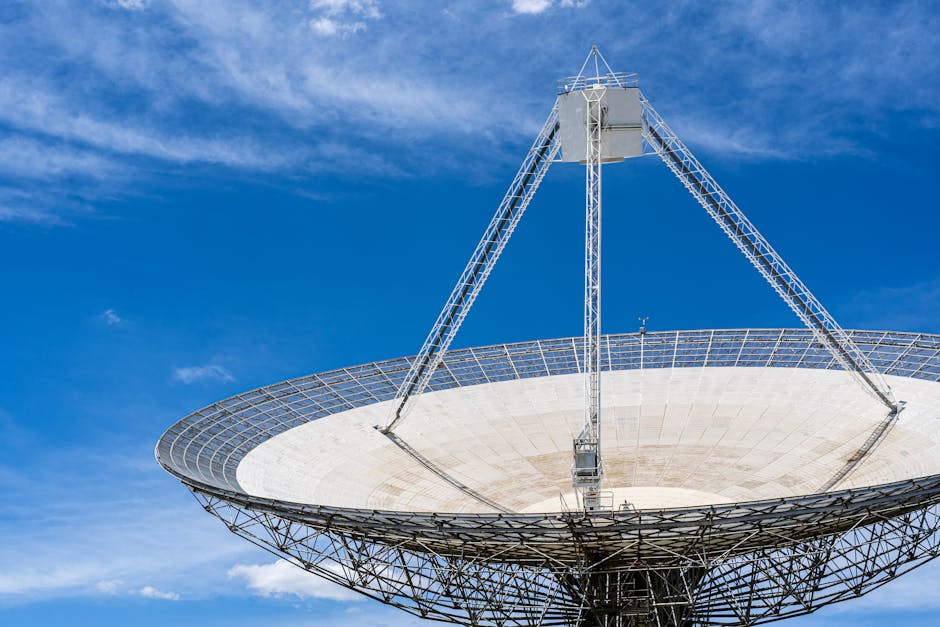SpaceX‘s Starshield Satellites Reportedly Transmitting Signals on Unauthorized Frequencies
In a development that has raised eyebrows among space and telecommunications experts, SpaceX’s Starshield satellites have reportedly been transmitting signals on unauthorized frequencies. This revelation, first brought to light by regulatory filings and independent investigations, has sparked concerns about potential interference with other satellite systems, national security implications, and adherence to international space regulations.
What is Starshield?
Starshield, a satellite network developed by SpaceX, is designed to provide secure and reliable communication services, primarily for government and defense purposes. It operates in tandem with the company’s Starlink constellation but is tailored for more specialized applications, including military and intelligence operations. However, recent reports suggest that some Starshield satellites are broadcasting signals outside their allocated frequency bands, a violation of international spectrum management protocols.
The Allegations
According to sources familiar with the matter, the unauthorized transmissions were detected by ground-based monitoring stations and other satellite operators. The signals are said to overlap with frequencies reserved for weather satellites, scientific research, and even commercial communication systems. This has raised alarms about potential interference, which could disrupt critical services such as weather forecasting, emergency communications, and global navigation systems.
The Federal Communications Commission (FCC) in the United States, which oversees satellite communications, has reportedly been notified of the issue. While SpaceX has not yet issued an official statement, industry insiders suggest that the company is aware of the problem and is working to resolve it. However, the lack of transparency has fueled speculation about whether this was an inadvertent technical glitch or a deliberate maneuver to expand Starshield’s operational capabilities.
Implications for Global Communications
The unauthorized use of frequencies is a serious matter in the highly regulated field of satellite communications. The International Telecommunication Union (ITU), a United Nations agency responsible for managing global radio spectrum and satellite orbits, has strict rules to prevent interference between different systems. Any deviation from these rules can lead to diplomatic tensions and legal repercussions.
For instance, weather satellites operated by other countries could be adversely affected by Starshield’s transmissions. This could compromise the accuracy of weather predictions, posing risks to aviation, agriculture, and disaster management. Similarly, scientific missions that rely on specific frequency bands for data collection could face disruptions, potentially derailing years of research.
National Security Concerns
Starshield’s primary purpose is to support U.S. national security, and its alleged unauthorized transmissions could have broader geopolitical implications. If other countries perceive this as a deliberate attempt to encroach on their allocated frequencies, it could escalate tensions and lead to accusations of espionage or sabotage. Moreover, the incident could undermine trust in SpaceX’s ability to operate its satellites responsibly, potentially affecting its partnerships with government agencies.
SpaceX’s Response and Future Steps
As of now, SpaceX has remained tight-lipped about the allegations. However, experts believe the company will need to address the issue promptly to avoid regulatory penalties and reputational damage. Possible steps include recalibrating the satellites’ transmitters, updating their software, or even deorbiting malfunctioning units.
The FCC, on its part, is likely to launch an investigation to determine the extent of the violations and whether they were intentional. If SpaceX is found to be in violation of its licensing agreements, it could face fines, restrictions on future launches, or even the revocation of its operating licenses.
A Broader Conversation
This incident highlights the challenges of managing the rapidly growing number of satellites in low Earth orbit. With companies like SpaceX, Amazon, and OneWeb deploying massive constellations, the competition for spectrum and orbital slots is intensifying. Regulatory frameworks will need to evolve to keep pace with technological advancements and ensure that space remains a shared and sustainable resource.
For now, the spotlight is on SpaceX to demonstrate accountability and transparency. As the company continues to push the boundaries of space technology, it must also uphold its responsibility to operate within the rules that govern the final frontier.
Stay tuned to NextMinuteNews for updates on this developing story.




